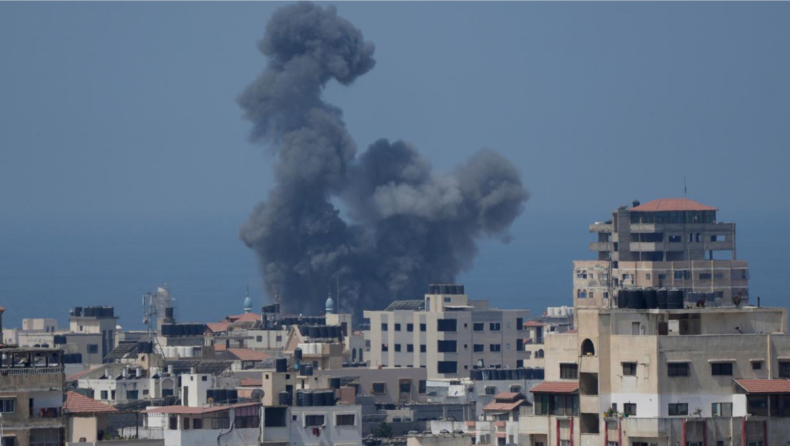
Image source: indiatvnews.com
Saturday saw the worst cross-border violence since last year’s 11-day Israel-Hamas war. Israeli airstrikes killed 11 people, including a senior commander from Iran-backed Palestinian Islamic Jihad.
Israel has launched several deadly airstrikes, including one that killed a senior commander from the Iran-backed Palestinian Islamic Jihad. Militants have fired dozens of rockets at Israeli cities, displacing tens of thousands. The latest violence is shown.
Under Hamas
Islamic Jihad is the smaller of the two main Palestinian militant groups in the Gaza Strip. It enjoys direct financial and military backing from Iran and is driving rocket attacks and other confrontations with Israel.
Hamas, which seized Gaza from the internationally recognized Palestinian Authority in 2007, has limited ability to act because it runs the impoverished territory’s daily affairs. Islamic Jihad has no such responsibilities and has become the more militant faction, undermining Hamas’ authority.
The group was founded in 1981 to create an Islamic Palestinian state in the West Bank, Gaza, and Israel. US State Department, EU, and other governments label it a terrorist group. Islamic Jihad vows Israel’s destruction like Hamas.
Iran-U.S. Ties
Iran, Israel’s archenemy, trains, advises, and funds Islamic Jihad, but most of its weapons are homegrown. It has developed an arsenal equal to Hamas’, with longer-range rockets that can hit Tel Aviv.
Friday air raid sirens sounded in Tel Aviv suburbs, but no rockets hit. Islamic Jihad maintains close ties with Iranian officials in Beirut and Damascus, where it is based. Ziad al-Nakhalah was in Tehran meeting with Iranian officials when Israel attacked Gaza on Friday.
Targeting Commanders
Israel has killed Jihad leaders in Gaza before. Taiseer al-Jabari replaced Bahaa Abu el-Atta, who Israel killed in 2019. His death was Israel’s first high-profile Islamic Jihad assassination since the 2014 Gaza war.
50-year-old Al-Jabari was a member of Islamic Jihad’s “military council” During the 2021 war, he oversaw Islamic Jihad activities in Gaza City and the north Gaza Strip. Israel said Al-Jabari was planning a missile attack.
This week, Israel arrested a senior Islamic Jihad commander in the West Bank. Bassam al-Saadi, 62, heads Islamic Jihad in the northern West Bank. Israeli media said al-Saadi was expanding the group’s reach in the West Bank.
Al-Saadi was an active Islamic Jihad member and spent 15 years in Israeli jails. Israel killed two of his sons, both Islamic Jihad militants, in 2002 and destroyed his home in Jenin that year. Zvika Haimovich, former head of the Israeli military’s air defense force, said, “Once you hit the commanders, it affects the whole organization.” “It disrupts the Jihad immediately.”
A delicate balance
Hamas has fought four wars with Israel since 2007, often with Islamic Jihad support. Aside from a flare-up earlier this year, the border has been quiet since last year’s 11-day war. Hamas appears to be staying out of this current conflagration, which may prevent all-out war.
Islamic Jihad has challenged Hamas by firing rockets, often without claiming responsibility, to raise its profile among Palestinians. Israel blames Hamas for Gaza rocket fire. Hamas must restrain Islamic Jihad’s fire at Israel while avoiding Palestinian anger if it cracks down. Hamas will decide how long — and how violent — this round of fighting lasts.
Leader-Caretaker
The current fighting comes as Israel heads to the polls for the fifth time in less than four years. Yair Lapid became caretaker leader after the government he helped form collapsed, triggering new elections.
Lapid, a centrist TV host and author, lacks the security background many Israelis consider essential. His political fortunes could depend on the current fighting, boosting if he can portray himself as a capable leader or hurting from a lengthy operation as Israelis try to enjoy the last weeks of summer. Lapid hopes to beat former Prime Minister Benjamin Netanyahu in the upcoming vote.













